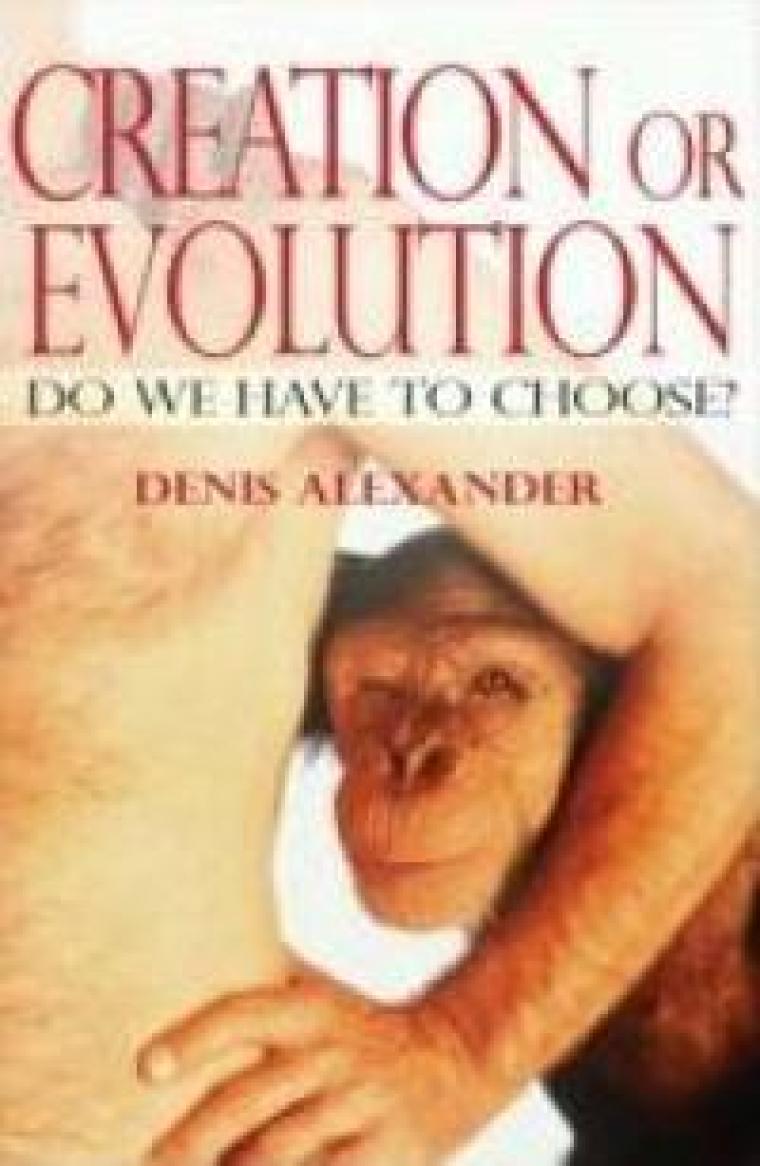
|PIC1|Yet this task is made harder by some Christians whose desire to uphold the authority of Scripture has led them to dismiss current scientific understanding of the Universe and especially the theory of Evolution.
For many scientists such views are likely to reinforce their dismissal of the Christian faith as merely an outdated superstition. Unfortunately, many books that address this issue appear to generate more heat than light as they seek to justify their own polarised position and rubbish the opposition.
Denis Alexander's "Creation or Evolution - Do We Have to Choose?" is a most welcome exception and deserves to be widely read. Denis is the Chairman of the Molecular Immunology Programme at The Babraham Institute in Cambridge and an internationally respected scientist. As a Christian he believes passionately that the Bible is God's authoritative word for man, yet his scientific studies provide him with overwhelming evidence for the Theory of Evolution.
In this, his most recent book, Denis takes us on a masterful and enlightening journey through both the relevant biblical text and the science underlying evolution, oscillating deliberately between the two as explains with clarity and conviction how the book of God's Works and the book of God's Words can be held in harmony. With Augustine, who famously said that 'Nature is what God does', he concludes that the answer to the question posed in the title is that it is Creation AND Evolution.
The target audience for his book is the (non-specialist) conservative Christian community in the UK, USA and elsewhere. It is written as a discussion and a dialogue and addresses such topics as: "What do we understand by the terms creation and evolution?"; "Are there valid scientific objections to evolution?"; "Does the theory of evolution demand atheism?"; "Who were Adam and Eve?"; "How do we understand by the Fall in the light of evolutionary theory?"; "What about intelligent design?".
In his writing, Denis shows great respect for those who would disagree with him, and asks for the same in return, eager that disagreements in this area should not hinder the saving work of the Gospel. This book fills a much needed gap and will go to the top of my recommended reading list for those wanting an informed and balanced approach to this topic.
Andrew Halestrap is a Professor of Biochemistry at the University of Bristol, a member of Christ Church Clifton and on the Editorial Board of Science and Christian Belief. This review was originally written for The Jubilee Centre www.jubilee-centre.org. This article is printed in Christian Today with permission from The Jubilee Centre